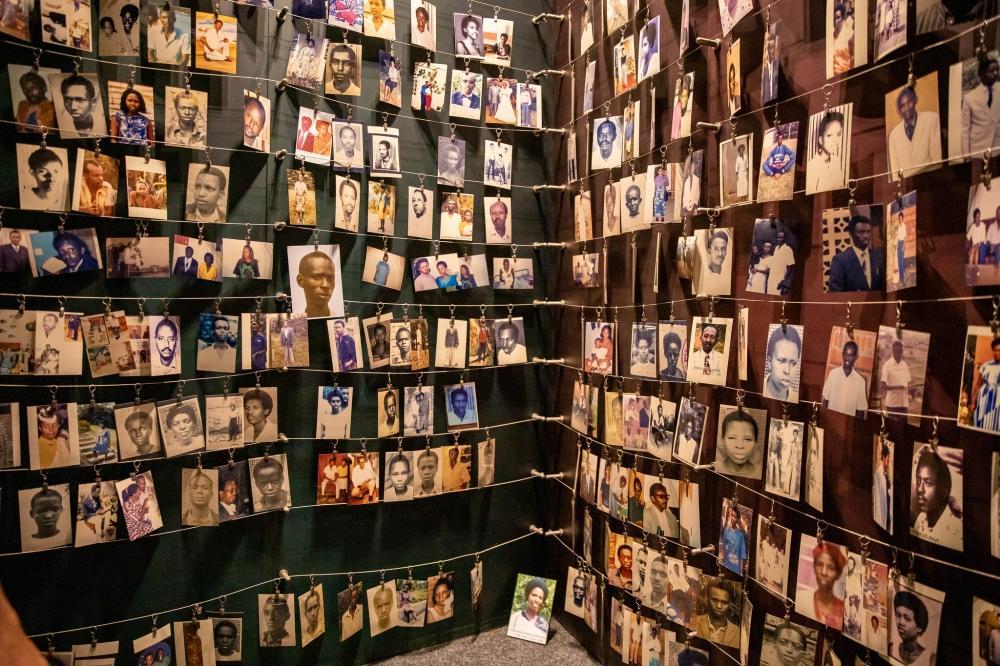Tom Ndahiro
Africa-Press – Rwanda. There are moments in a nation’s life when silence speaks louder than words—when the air itself feels heavy with memory. In Rwanda, during the commemoration of the Genocide Against the Tutsi, the entire country walks through such a moment.
Time does not move forward during this season; instead, it circles endlessly around an open wound. The atmosphere becomes thick with remembrance, sorrow, and reflection. It is not a time for ceremony alone—it is a time for confronting unbearable truths that linger like unsettled spirits.
I still remember a Kwibuka event before 2010 at what is now Pele Stadium in Nyamirambo. I had been invited to speak. Just before I took the stage, a song played—a song by artist Mariya Yohana Mukankuranga whose voice has become synonymous with Kwibuka.
Among the many voices that pierce the silence of remembrance, few are as haunting, as tender, and as true as hers. Her song “Nkwibutse se Kwibuka?”—”Should I Remind You to Remember?”—is not merely music. It is a lament. A dirge. An indictment of forgetting.
Its refrain—“Sindata igiti”—left me in tears. Again in April 2024, at a Kwibuka event, a friend, Assumpta Mugiraneza, reminded me of the same song. Since then, I have felt compelled to write about Mariya Yohana’s cry to humanity.
This song is a cry from a soul too wounded to forget, a soul that still stands at the threshold of mass graves, a soul that has not—and perhaps will never—“swept away the ashes.”
A song that transcends borders
Though Mariya Yohana sings to Rwanda, her words soar far beyond its borders. They are a summons to all of humanity. A mirror held up to societies that excuse, deny, or minimize the profound evil of genocide.
Her words are a reproach to those who, in cowardice or malice, seek to silence the memory of the slaughtered—by denying their deaths, justifying their suffering, or urging us to “move on” without justice.
There are wounds that never heal. That is the truth for survivors of genocide.
“Rwandan, should I remind you to remember?” she asks—not with condescension, but with heartbreak. She answers herself: “You are constantly reminded; the slightest tremor plunges you back into memory.”
Trauma is not confined to anniversaries. It is not scheduled. It returns in a scream, a look, a smell, a tremor in the earth.
For survivors of the Genocide Against the Tutsi, memory is not optional. It bleeds into everyday life. It rises uninvited, even in moments of peace.
Mariya Yohana captures this with aching precision. Forgetting is impossible—yet she still pleads with us to remember, because collective amnesia, often imposed by denialists, is still a threat.
The cost of remembering
“O God, I hide no secret from You, I am exhausted!
How tired I am!
My heart returns to it so often,
Strength fails me, grant me respite.”
In these lines, the song shifts from the communal to the deeply personal. Memory, here, is labor. It is a burden.
To remember honestly, year after year, is to resist denial, minimization, and false equivalence. It is to carry the cost of mourning an entire family, a vanished community—whose laughter, names, and stories survive only in the heart of a witness.
Mariya Yohana is open about this cost. She is exhausted. Heartbroken. Weary from memory’s relentless return. And yet, she remembers—because to forget would be betrayal.
“I still mourn them; I have not yet swept away the ashes.”
In Rwandan culture, sweeping away ashes marks the end of mourning. But how can one sweep away ashes when the dead are so many, when justice remains elusive, when denial is echoed across continents?
To say “I have not yet swept away the ashes” is to resist the pressure to “move on.” It is to insist that mourning is not on the world’s timetable—it ends only when justice and truth prevail.
Memory with names and coordinates
Mariya Yohana does not speak in abstractions. She forces us to look at what genocide truly was:
“I remember those dying infants and feel faint,
Their mothers were dishonored by their executioners before the final blow…”
“I also remember those who were thrown into mass graves,
Those whose lifeless bodies decayed in the open air,
And those whose fate remains unknown.”
This is memory without compromise. Memory that refuses the sanitized history favored by the indifferent and the complicit.
Her song resurrects the horror: the babies, the violated mothers, the dumped bodies, the permanently missing. These are not political tools. They are sacred truths.
To sing them aloud is to bear witness—to keep history honest.
The Crippled Voices of Survivors
“My hiding place was not discovered, but I cannot say I am unharmed,
Indeed, I am but a crippled survivor…”
Survival does not mean wholeness. Many survivors lost families, dignity, trust, and parts of themselves.
But they speak. Despite pain and fatigue, they speak. And their voices carry a moral authority that denial cannot erase. Their very existence shames a world that abandoned them.
The Land Remembers Too
“Say, Rwandan (of all backgrounds), remember:
Though time passes, though it perishes,
The memory of all those rivers reddened by the blood of the innocent endures.”
Rwanda’s hills, rivers, and valleys witnessed genocide. Memory is inscribed into the landscape.
When Mariya Yohana calls on all Rwandans, she recognizes that memory is a duty shared across all identities. Denial betrays not only victims, but the land itself.
She names sacred places:
Ntarama, where the faithful were slaughtered in a church.
Gisozi, where over 200,000 rest.
Bisesero, where the brave resisted and were abandoned.
These are not symbols. They are sites of witness. Sacred geography.
The Danger of False Reconciliation
“One cannot reconcile on guilt and resentment, never.
One cannot build unity with irreparable wounds at the center.
But truthful justice is restorative.”
There is no shortcut to peace. No unity through lies. No reconciliation through forgetting.
Those who say “both sides committed atrocities,” who urge survivors to “let go,” who seek to bury the past for comfort’s sake—are enemies of justice.
Mariya Yohana rejects that. Healing must be rooted in truth, justice, and authentic remembrance.
Memory as a Moral Shield
To remember is not to cling to the past—it is to protect the future.
To forget is not healing—it is betrayal.
True reconciliation demands that we name what happened, that we listen to the silence left by the dead, and honor it through vigilance and courage.
Memory is not a passive act. It is a form of guardianship. A moral stand against cynicism and distortion.
The absent—mothers, children, brothers—call not with voices, but with their absence. That absence demands moral clarity.
A Cry for Humanity
“I still mourn them; I have not yet swept away the ashes.”
This refrain is not just Rwanda’s cry. It is humanity’s.
From Armenia to the Holocaust, from Namibia to Cambodia, from Bosnia to the DR Congo—the dead cry out: “Remember us. Tell the truth. Mourn us rightly.”
Mariya Yohana’s song is not merely a national anthem of grief. It is a universal indictment.
To forget is to kill again.
To deny is to side with murderers.
To minimize is to desecrate the sacred.
To remember is to begin justice.
In a world quick to forget, quick to distort, quick to sanitize the past for convenience—”Nkwibutse se Kwibuka?” stands as a solemn, defiant reminder:
There are ashes that must never be swept away.
There are memories that must never die.
There is mourning that must never be rushed.
There is truth that must never be silenced.
In remembering, we remain human.
In forgetting, we risk becoming monsters.
Even as sorrow threatens to break us, we echo her cry:
We remember. We mourn.
WE HAVE NOT YET SWEPT AWAY THE ASHES—AND WE SHALL NOT.
Source: The New Times
For More News And Analysis About Rwanda Follow Africa-Press






